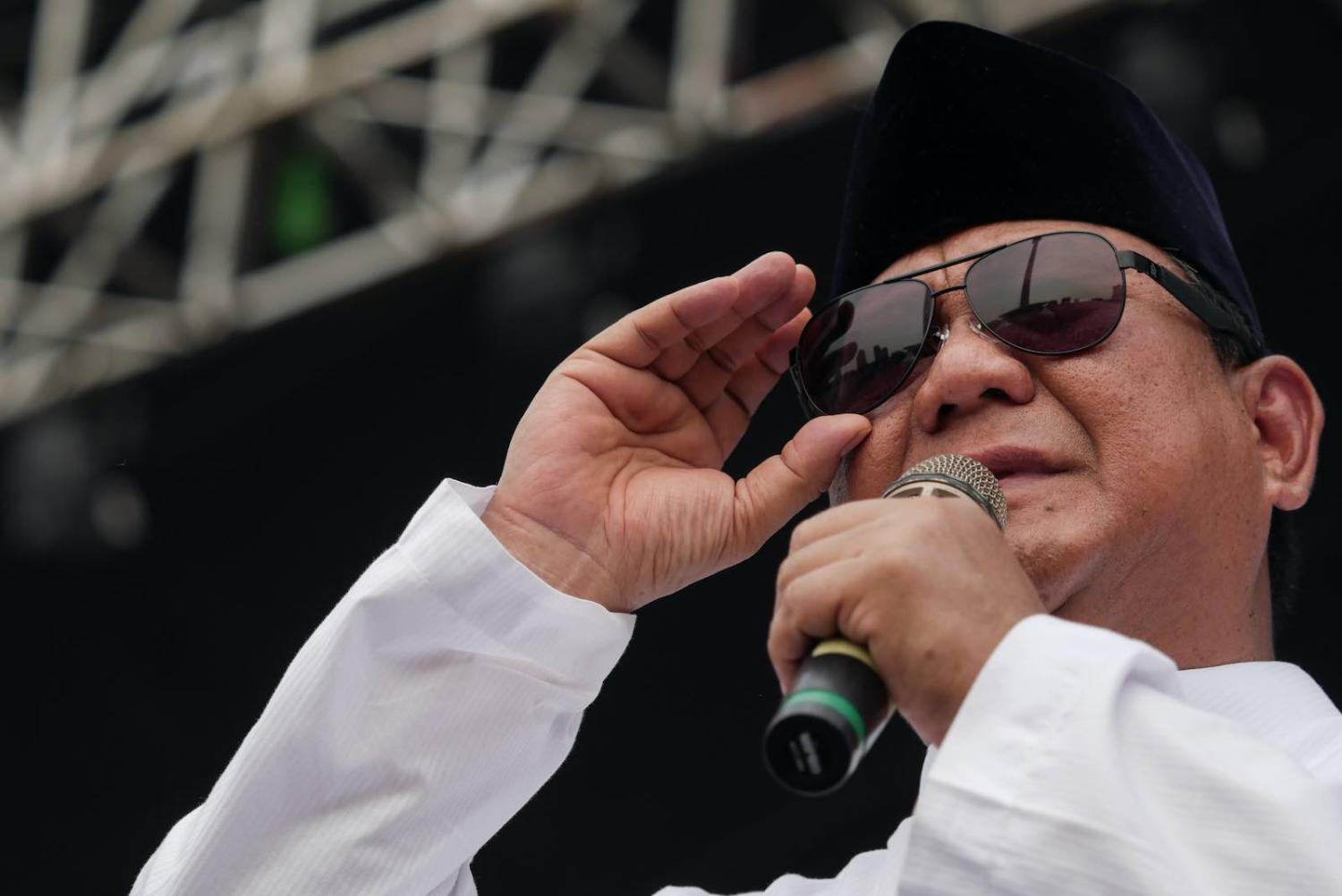Having been barred for more than 20 years from entering the United States, Indonesia’s Defence Minister Prabowo Subianto was welcomed to Washington last week after accepting a formal state invitation from his American counterpart, Defense Secretary Mark Esper.
The visit attracted stinging criticism from human rights activists who allege Prabowo is responsible for serious rights violations and atrocities dating back to Indonesia’s occupation of the now-independent Timor-Leste. Prabowo, a senior military commander in the Indonesian military in the 1990s, last year ran to be Indonesia’s president and lost, only for his rival Joko Widodo to make a him a surprise appointment to the defence portfolio.
But as much as the US, as a sovereign nation, was entitled to put Prabowo on a blacklist in the first place, it was also within its rights to decide to remove him. Probowo’s visit was in his ministerial capacity and should be respected in that light.
Always a productive conversation with #Indonesia’s Minister @prabowo on how the Department of Defense and @Kemhan_RI can enhance our partnership, even amidst #COVID19. pic.twitter.com/245H83nxCt
— Dr. Mark T. Esper (@EsperDoD) August 5, 2020
The Pentagon described the visit as one focused on regional security in Southeast Asia, as well as defence acquisitions between US and Indonesia. Esper appeared to make a point to emphasise the importance of upholding human rights and military “professionalisation” in a joint statement, while Prabowo focused on the importance of military engagement “at all levels”.
But for all the criticism and controversy, it was clear this visit was also very much about China. In recent months, the US-China rivalry in Southeast Asia has only grown. The trade war and the escalation in the South China Sea had set the stage. The Covid-19 pandemic has only accelerated the challenge, with China’s high-profile assistance to Southeast Asian countries catching plenty of attention.
Indonesia’s foreign ministry has made sure to publicise its view that Indonesia would remain neutral in the US-China rivalry.
Indonesia has long sought to position itself strategically in the middle with regard to the US-China rivalry in the region. Its so-called “free and active” foreign policy doctrine has meant Indonesia would not lean too far one way or the other. But that doesn’t stop both China and the US seeking to gain more influence in Indonesia, given Jakarta is often seen as one of the key capitals within the ASEAN grouping.
And while many of those same ASEAN capitals might see Beijing as a threat, particularly in maritime disputes, they also consider China to be the most influential economic, political, and strategic power in the region.
This makes Indonesia a prize in the growing strategic rivalry, and for Washington, past concerns about human rights issues won’t be seen as an obstacle to pursuing closer ties.
In August, US Secretary of State Mike Pompeo called Indonesian Foreign Minister Retno Marsudi to emphasise their countries’ common interest in assuring international law governs the contested waters of the South China Sea. Later, in September, Pompeo participed in the ASEAN–United States Foreign Ministers’ Meeting, and declared the US would support Southeast Asian states in dealing with China’s bullying moves in the South China Sea.
Even so, Indonesia’s foreign ministry has made sure to publicise its view that Indonesia would remain neutral in the US-China rivalry.
As if to underline the point, a couple of weeks following Pompeo’s call, Jokowi dispatched Marsudi and Indonesia’s Minister for Enterprise Eric Thohir on a visit to China to discuss issues including Covid-19 assistance. China’s Foreign Minister Wang Yi repeated assurances that China will continue to negotiate in long-standing efforts to draw up a code of conduct in the South China Sea.
Recognising this balancing act is important context in which to judge Prabowo’s visit to Washington. On departing for the US, Prabowo described America as a very important country, and there is little doubt that the South China Sea issues would have featured as a major talking point behind closed doors. Indonesia would be happy for the US to put pressure on China to accelerate the code of conduct negotiations.
It would be tempting to conclude, as some analysts have, that his visit marks a shift by Indonesia towards Washington. But in truth, Prabowo has merely taken another step in Indonesia’s effort to walk a regional tightrope.

